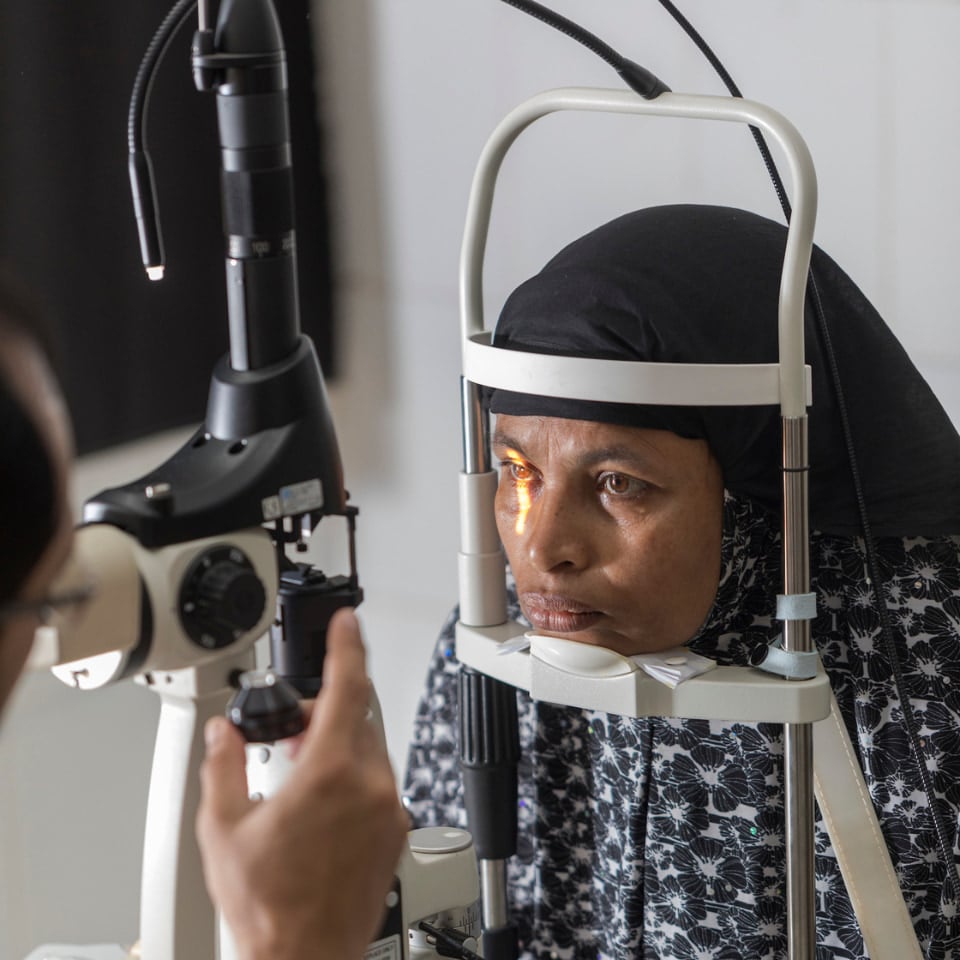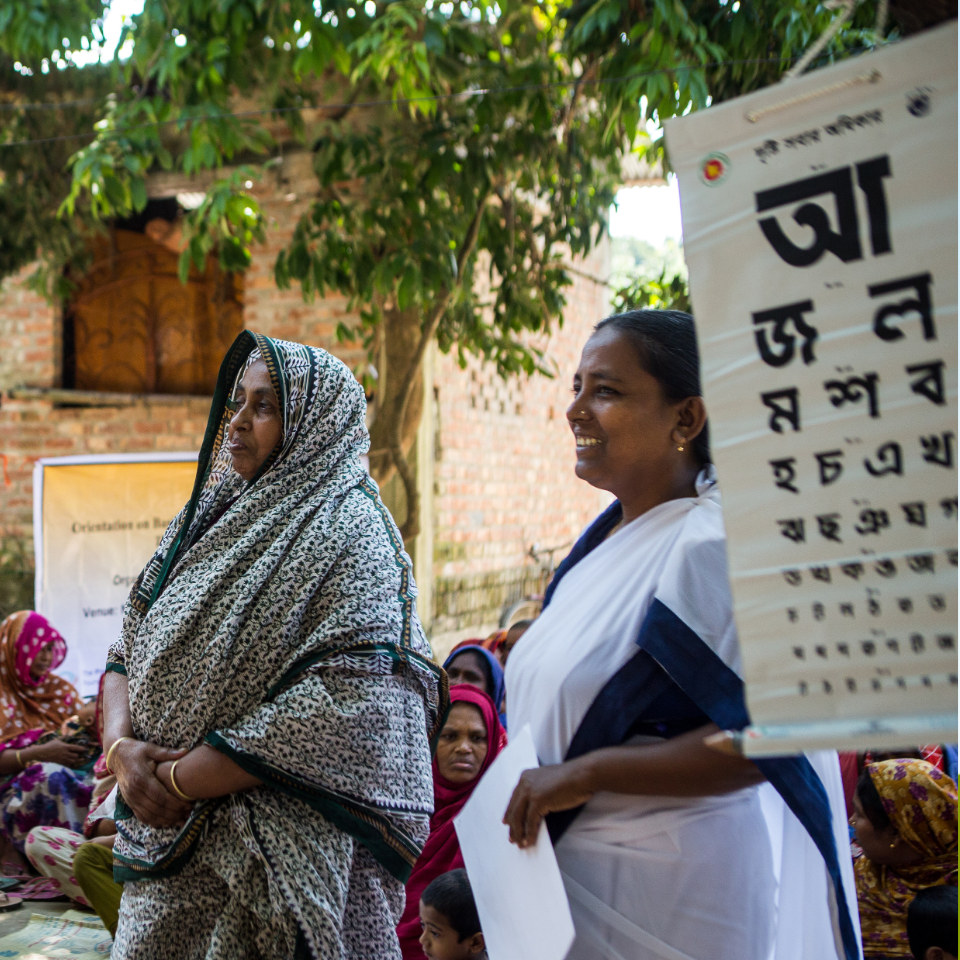We want to see a world in which all people have access to high quality, affordable eye health care, and because we know that women and girls are disproportionately affected, access is crucial.
Eye health, by virtue of the scale of the problem, has a catalytic role to play in unlocking opportunity towards achieving an equal world for women and girls. It reaches across every corner of the globe and is especially prevalent in low- and middle-income countries and has a major impact across the social and economic fabric of society.
To end inequality and discrimination against women and girls, and with time running out to achieve the ambition of the 2030 Agenda for Sustainable Development, a broad coalition of groups must make a significant effort now to address inequity.
Here's what we'll cover...
Click on the link to jump to sections that you're most interested in.
Why is blindness and vision impairment a gendered issue?
Women and girls are more likely to develop vision impairment and less likely to get treatment. Ninety percent of vision loss is in lower and middle-income countries, with women and girls accounting for 55% of cases globally.
Vision impairment and blindness have far-reaching implications, not just for the women and girls affected, but also for their families and communities. Women and girls with blindness and vision impairment are often disempowered from conversations and decision-making that affects their health and wellbeing and those of their families.
Unfortunately, women and girls often face significant cultural barriers and gender discrimination, which means they are less likely to receive services or treatment with the same frequency as men.
When girls are blind or significantly vision impaired, they are often left out of accessing education and girls often act as caregivers for adults with vision impairment, impacting their ability to gain an education.
Furthermore, women occupy most domestic or unpaid care roles and women with blindness are often locked out of paid employment, perpetuating a cycle of poverty and disadvantage for women with vision-related disability.
Older women face even greater challenges.
Older women are more likely to live with avoidable blindness than older men. They live longer, increasing their risk of eye conditions like cataracts, and face greater barriers to accessing treatment due to financial and cultural factors. Vision loss in older age can make daily tasks and caregiving responsibilities more difficult—affecting not only their independence but also placing a burden on younger women who often leave work to care for ageing relatives. Ensuring older women receive eye care helps them stay independent and reduces the caregiving burden on the next generation. Healthy ageing is crucial for everyone, but is especially important for women.
Find out more about why blindness is a gender issue here.
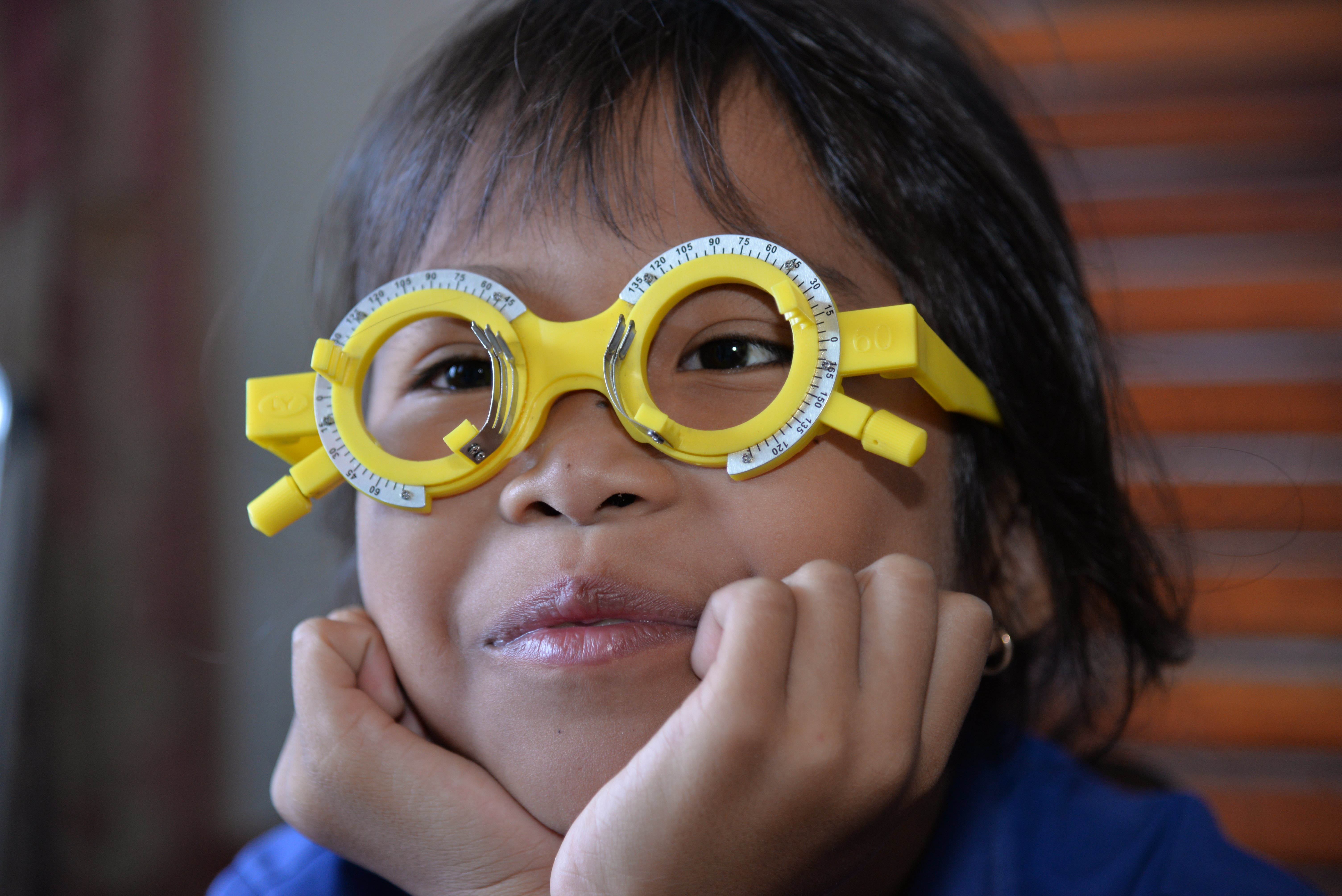
How is the global health system impacted by gender inequity?
Global health is losing out on the talent, skills and perspectives of women.
The global eye health disparities women and girls face are not unrelated to those that female health care professionals and caregivers face.
Despite growing recognition of the unique experiences and skills women bring, most women still lack the economic, political, and legal power and influence to become their own agents of change.
While women make up 70% of the healthcare workforce, they occupy less than 25% of the most influential leadership positions.
Their contribution to health systems is monumental, but the majority of work conducted by women is either underpaid or unpaid, leaving women with few opportunities for advancement or to care for their own health.
Even though women play a critical role in the advancement of global health, both in formal roles and informally within their families and communities, men continue to hold the majority of leadership positions.
Amplifying the voices of women healthcare workers and their impactful work is particularly important. They know what the women in their communities need and what barriers they face, and their wealth of knowledge can improve the status of eye care for women globally.
Inequitable health systems impact the health of all. Continued unequal health outcomes and structural gender inequity within the healthcare system will persist if women’s perspectives are not included more intentionally in planning, policymaking, and programming.
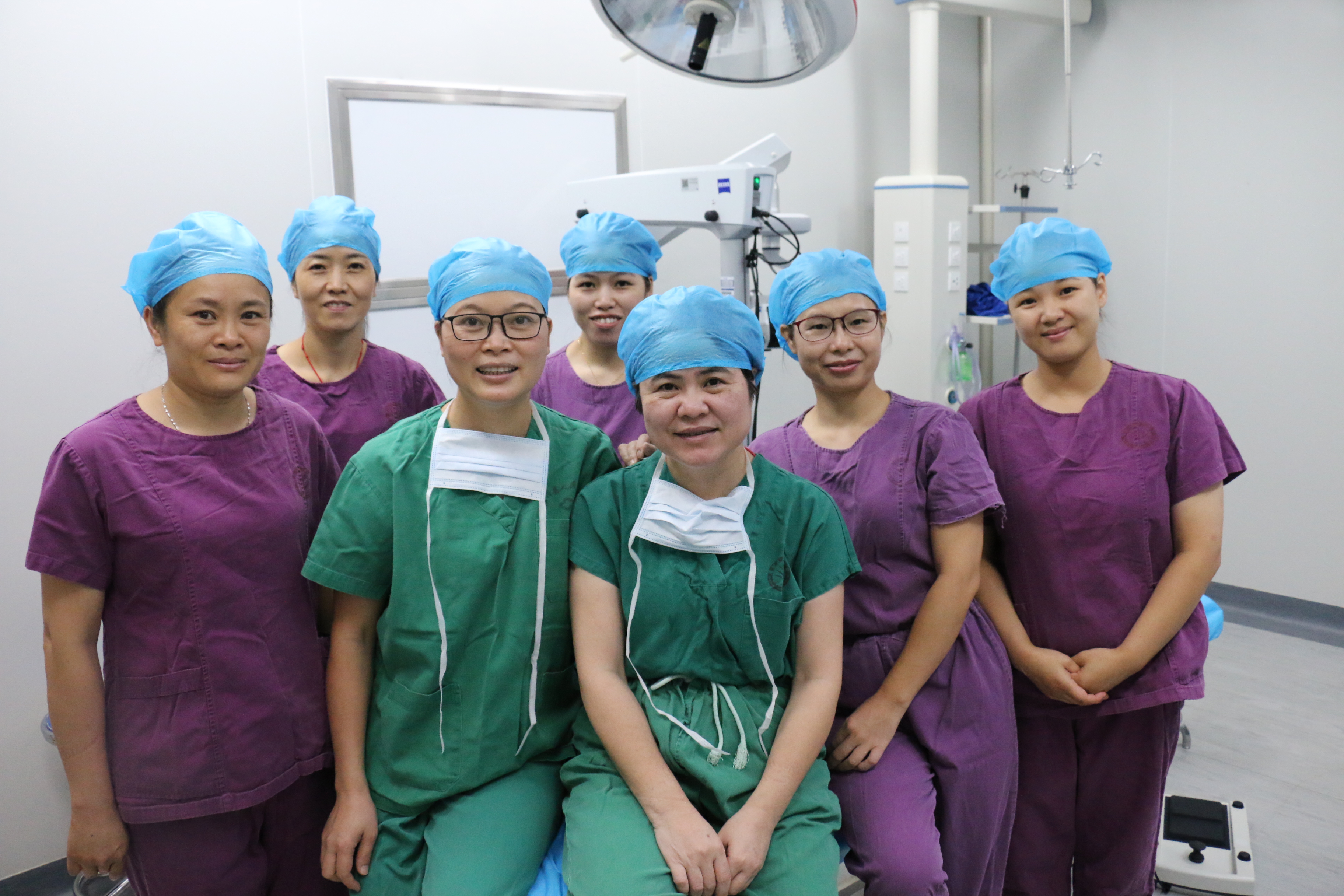
Why does the Fred Hollows Foundation support closing the gender gap?
As an international development organisation, The Fred Hollows Foundation knows that vision impairment and blindness are both a contributor to gender inequities and an outcome of gender inequity.
Preventing and treating avoidable blindness and vision impairment and ensuring the full inclusion for women and girls living with vision related disability has a crucial role to play in the reduction of gender inequities and in the overall effort to achieve the Sustainable Development Goals.
The Foundation believes that all those who need eye care can and should receive it and a key element of our strategy is ensuring equitable access to care for women and girls.
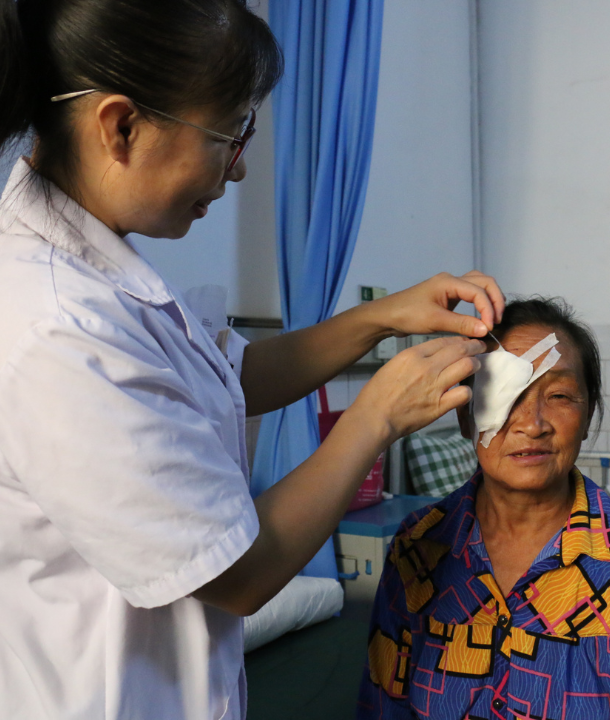
Want to know more?
Download The Fred Hollows Foundation’s "Women Deliver Eye Health: Let’s Reframe Who Leads It" report released at Women Deliver in July 2023.
What actions are The Foundation taking?
Globally, women are 55% more likely to be blind or vision impaired than men.
In response to this disparity, The Foundation has established an organisation gender strategy which prioritises gender equity and works to advance gender equity through our programs and business practices.
The Foundation established our ‘Gender, Equity and Inclusion Framework’ in 2019 and each year we set ourselves ambitious targets to make significant progress to address inequity and embed gender equity and inclusion across all that we do.
In December 2022, The Foundation co-authored an article published in the Health Policy Watch Journal with the NCD Alliance and The George Institute for Global Health, which examined gender barriers to health care, particularly in chronic NCDs.
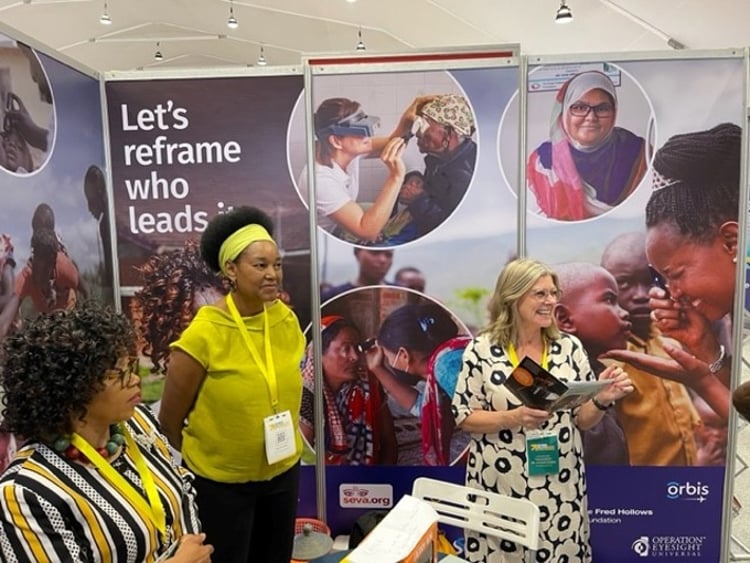
Dr Glory Misibi, Dr Ciku Mathenge and Jennifer Gersbeck launch The Foundations report at Women Deliver in July 2023
The Foundation is also the Co-Chair of the International Agency for the Prevention of Blindness (IAPB) Gender Equity Work Group where a Gender Equity Toolkit has been developed to help the whole eye health sector move gender equity forward across programming and within their own organisations.
For everyone to receive the eye care they need, we must ensure equitable access to care for women and girls.
Our strategy goes beyond equality and recognises women and girls across the world have different needs, preferences, and constraints. As Fred Hollows once said: ‘inequity diminishes us all’.
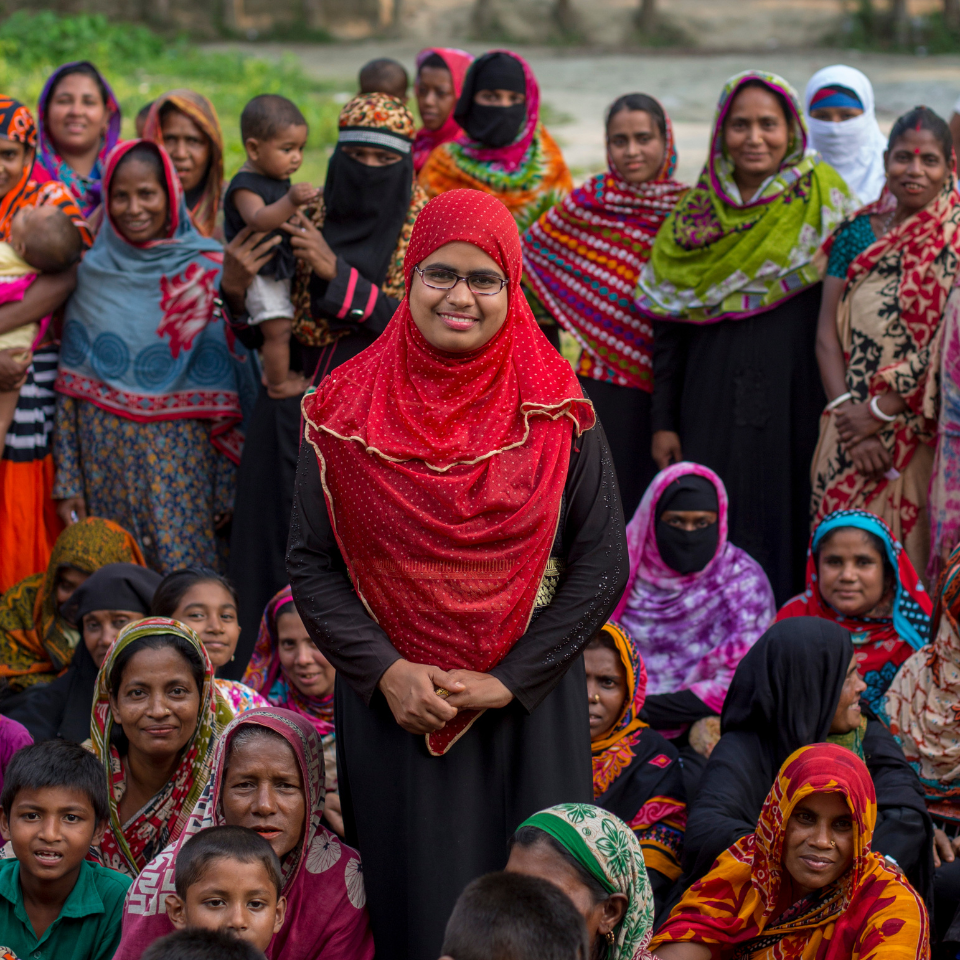
Leave no women behind
The Foundation with the support of the Ambassador for Regional Health Security, Dr Stephanie Williams, recently launched a DFAT ANCP-funded joint policy brief with UN Women: ‘Leave No Woman Behind – Closing the Gap on gender in eye health’.
As part of its development, a consultation was held with over 170 participants which included women with vision impairments, women’s and girls’ rights grassroots organisations, disability rights NGOs, national organisations for the blind, national eye health NGOs and research institutes, eye health professionals and primary and hospital care providers from across the world (including Asia and the Pacific, Eastern and Southern Africa, West and Central Africa Europe, Central Asia and the Arab States, and Latin America and the Caribbean).
Together, their resourceful and innovative suggestions enabled a truly needs-based and localised eye health care support and services policy brief with women and girls’ voices who are currently at the greatest risk of being left behind, being at the heart of the calls for change.
Key recommendations include: amplifying the voices and ensuring the meaningful participation of women who are blind or have vision impairment at all levels of decision-making, increased resources to policies and programmes in all relevant sectors that impact women’s eye health, upholding women’s and girls’ rights, tackling multiple and intersecting forms of discrimination, and eliminating gendered barriers preventing women’s access to eye care. Read an accessible version of the report here.
